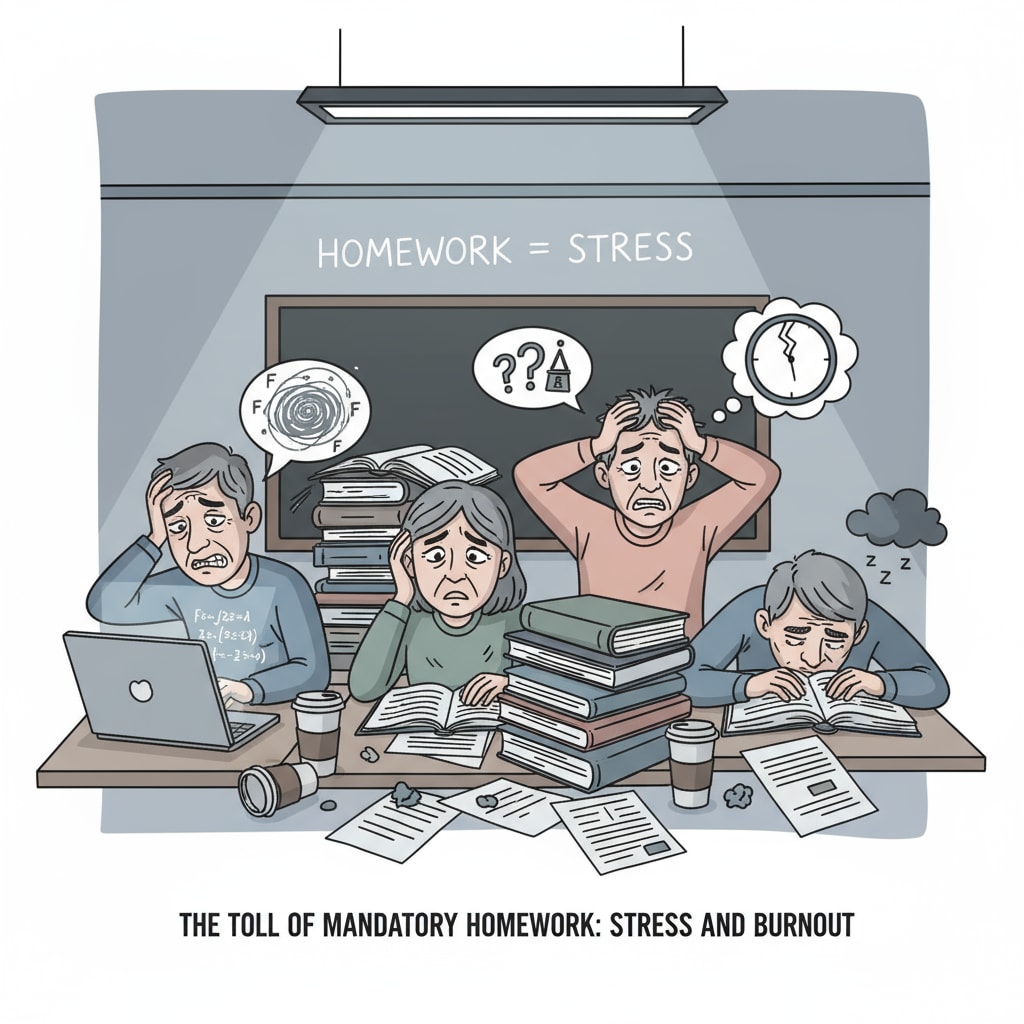In the realm of education, the concepts of homework, autonomy, and personal responsibility intersect in a crucial way. As students grow older, the question of whether they should have the autonomy to choose whether to complete homework has sparked a lively debate. This article delves into why older students indeed deserve this freedom, exploring the limitations of traditional mandatory homework systems and the potential benefits of embracing autonomy.
The Limitations of Mandatory Homework
Mandatory homework has long been a staple in educational institutions. However, it often comes with several drawbacks. For example, it can lead to excessive stress among students. Many older students are already juggling multiple academic subjects, extracurricular activities, and personal commitments. Forcing them to complete homework might push them to the brink of burnout. According to American Psychological Association research on student stress, the pressure from homework is a significant contributor to mental health issues among students.

The Power of Autonomous Learning
When students are given the autonomy to choose whether to complete homework, it promotes autonomous learning. Autonomous learning is about taking control of one’s own learning process. Older students, with their more developed cognitive abilities, can better understand their learning needs. For instance, if a student is particularly strong in a certain subject, they might choose to spend more time exploring advanced topics rather than focusing on repetitive homework tasks. This way, they can enhance their personal responsibility for learning. As stated in Wikipedia’s entry on autonomous learning, autonomous learners are more likely to be motivated and engaged in their studies.

Furthermore, this autonomy helps students develop crucial decision-making skills. They need to weigh the pros and cons of doing or not doing their homework. If they choose not to do it, they must face the consequences, such as lower grades or a lack of understanding of the subject matter. This process of making choices and dealing with the outcomes is essential for their growth into responsible adults.
In conclusion, the idea of giving older students the autonomy to choose whether to complete homework is a revolutionary step in education. It challenges the traditional norms and offers a path towards cultivating more responsible, self-directed learners. By recognizing the importance of autonomy in the context of homework, we can better prepare our older students for the challenges and opportunities that lie ahead in their academic and personal lives.
Readability guidance: This article uses short paragraphs and lists to summarize key points. Each H2 section provides a clear perspective. The passive voice and long sentences are kept to a minimum, and transition words like “however,” “for example,” and “furthermore” are used throughout to enhance readability.


